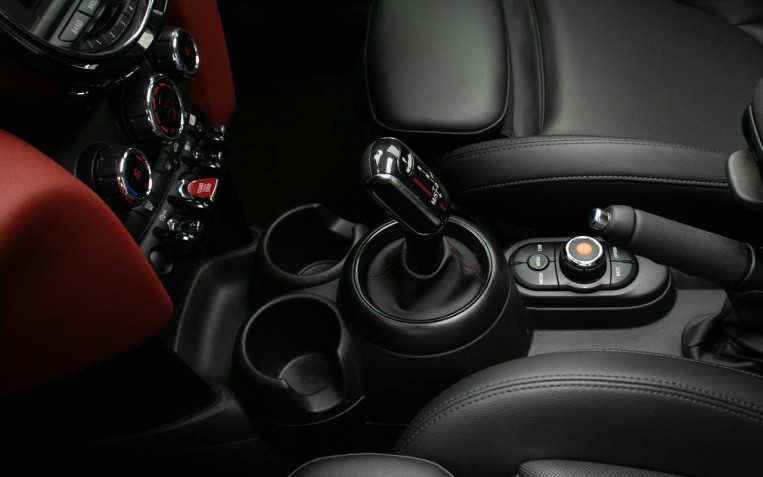Top 7 tips for nervous drivers

Many of us are nervous drivers - even after we pass our tests, a lot of us struggle with certain manoeuvres or worry about driving in the dark. If this sounds like you and you'd like some tips to alleviate your anxiety on the road, read on to find out what our 7 tips for nervous drivers are.
Why am I a nervous driver?
The trick to overcoming your nerves is pinpointing what aspect of driving triggers your worry - when you understand the problem, you can start to combat it at the source. Here are four of the most common reasons for nerves before driving:
- New drivers are often more nervous than seasoned drivers, as there are a number of daunting driving experiences (such as breaking down or road rage) that they are unlikely to have been through. Equally, newer drivers are often apprehensive about driving alone.
- Long distances can often be a trigger for driving anxiety, including travelling along the motorways or new roads. Many people are uneasy about driving along roads they aren't familiar with because of complex traffic systems or high speeds. The sheer length of a long distance drive can also cause worry for some drivers.
- Driving at night can cause anxiety in a lot of drivers due to the lack of visibility. Dimly lit streets and twisting country lanes can look very different after the sun goes down!
- Past experiences are, of course, a major reason for nervous driving. After a collision or breakdown, it is understandable that the person affected would never want the same thing to happen again - consequently, drivers become more nervous when heading out to the roads after an accident.
Tips for driving as a nervous driver
As shown, there are many reasons for driving nerves and luckily, there are more solutions! With a greater understanding of what's causing your fears, you should be able to combat them more effectively:
1. Plan your journey
The fear of the unknown is one of the biggest anxieties associated with driving. Many people find not knowing the roads they'll be driving on very nerve wracking, especially on long journeys. One of the best solutions to this is planning your route before you head off - this should allow you to get a feel for the type of roads you'll be facing. Make sure you mark out any potential stop points which you can divert to if your nerves become overwhelming.
2. Check your car before setting off
If your fear is centred around breaking down, one of the best solutions is to keep an eye on your car. Before setting off have a few checks that you always carry out - perhaps check your tyre pressure and oil levels - this should set your mind at ease if you know your car is in full working order. Equally, a regular car service can help lessen the anxiety surrounding potential breakdowns.
3. Stick to familiar routes
Where you can, try to stick to more familiar routes when you first start driving. Of course, it is tricky to only drive familiar routes, but practising on these might help build your confidence - so when you do have to tackle new roads, you will be able to do so with little fuss.
4. Have a list of emergency contacts
If your fear is rooted in breakdowns, having an easily accessible list of all your emergency contacts should set your mind at ease - you'll know that, should you experience any issues, help is just a phone call away. It's everyone's nightmare to be stuck on the side of the motorway, rifling through the glove box, trying to find your breakdown cover - so, having this easily accessible list will not only help you relax before the drive, but will also help calm you in the unlikely situation where you have broken down.
5. Practise, practise, practise!
Perhaps you find roundabouts particularly tricky to manoeuvre or maybe your nerves flare at the thought of parallel parking. Either way, the most effective remedy is throwing yourself in the deep end. By practising the aspects of driving that you find most daunting, not only do you ease your fears, but you'll end up improving your own skills.
6. Turn on the tunes
Although it could improve your concentration, driving alone could also be eerily quiet sometimes. So adding a little bit of noise from your favourite singer or putting on a podcast discussing a topic that makes you smile can really put you at ease. However, make sure you keep your radio at a moderate volume as you don't want to distract yourself from the roads.
7. Take passengers
Anyone who has passed a driving test knows the fear that comes with driving on your own for the first time. If driving alone is too daunting, there is nothing wrong with having another, more seasoned, driver in the passenger seat - as they will be able to guide you if you ever need help and talking can often serve as good a distraction as listening to music.
Still worried about going for a drive, locate your nearest PTA Garage and book in for a service to ensure that your car is functioning as it should. For any more motoring queries or advice for nervous drivers, get in touch with our expert team.
Related Content

Should I have soft or stiff suspension springs for my vehicle?
Suspension springs are essential for maintaining your vehicle’s stability and ride height. Over time, the springs will succumb to wear and tear, which affects how your car handles, brakes and accelerates on the road. Discover whether you should...

What is engine braking?
Engine braking involves taking your foot off the accelerator pedal, allowing your car to slow down. Over time, the parts on your vehicle’s braki...

A guide to the different types of car clutches
The clutch is responsible for channelling the power from the engine, through to the gearbox, and the wheels. Your vehicle's clutch will differ dependi...

